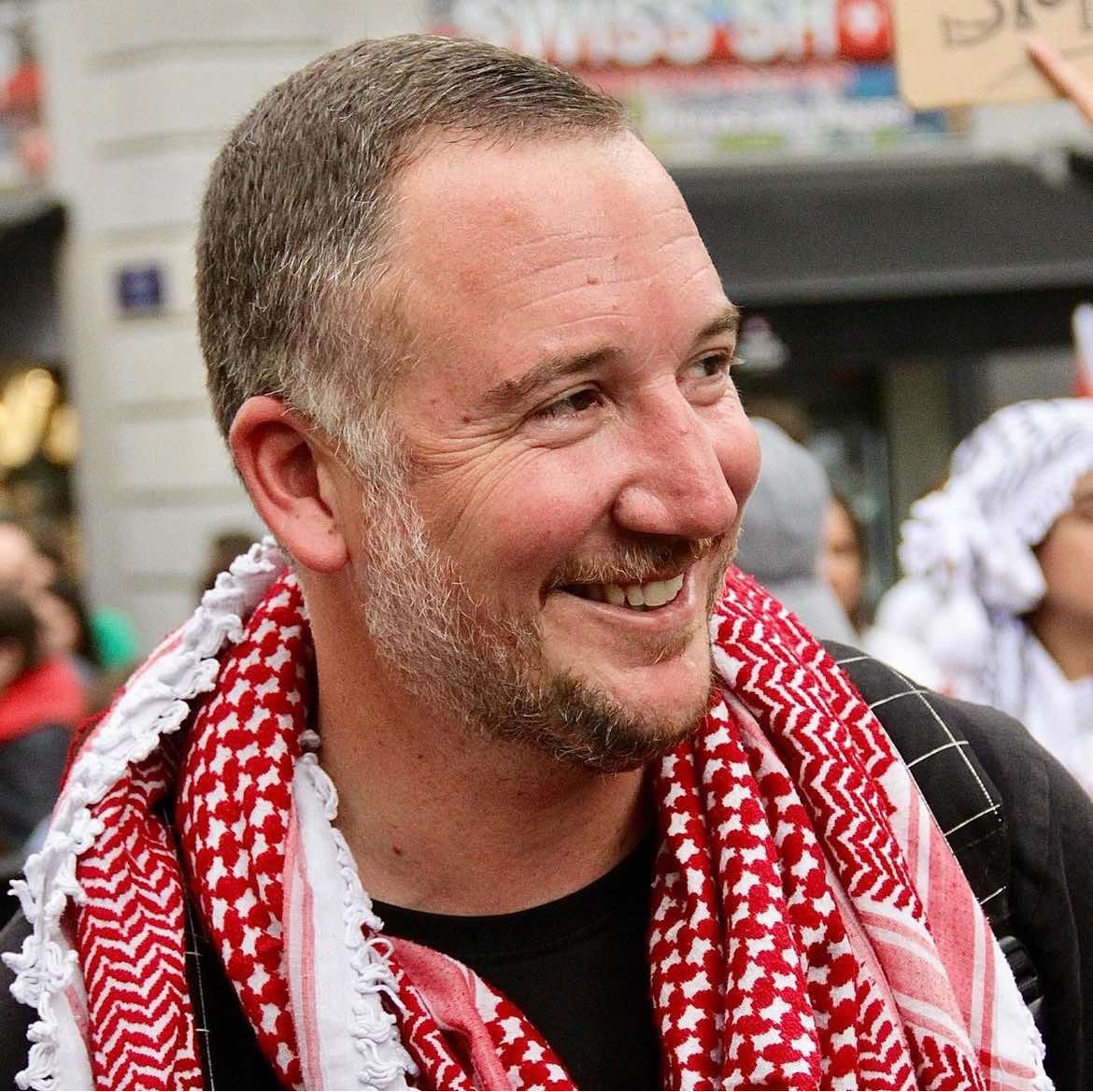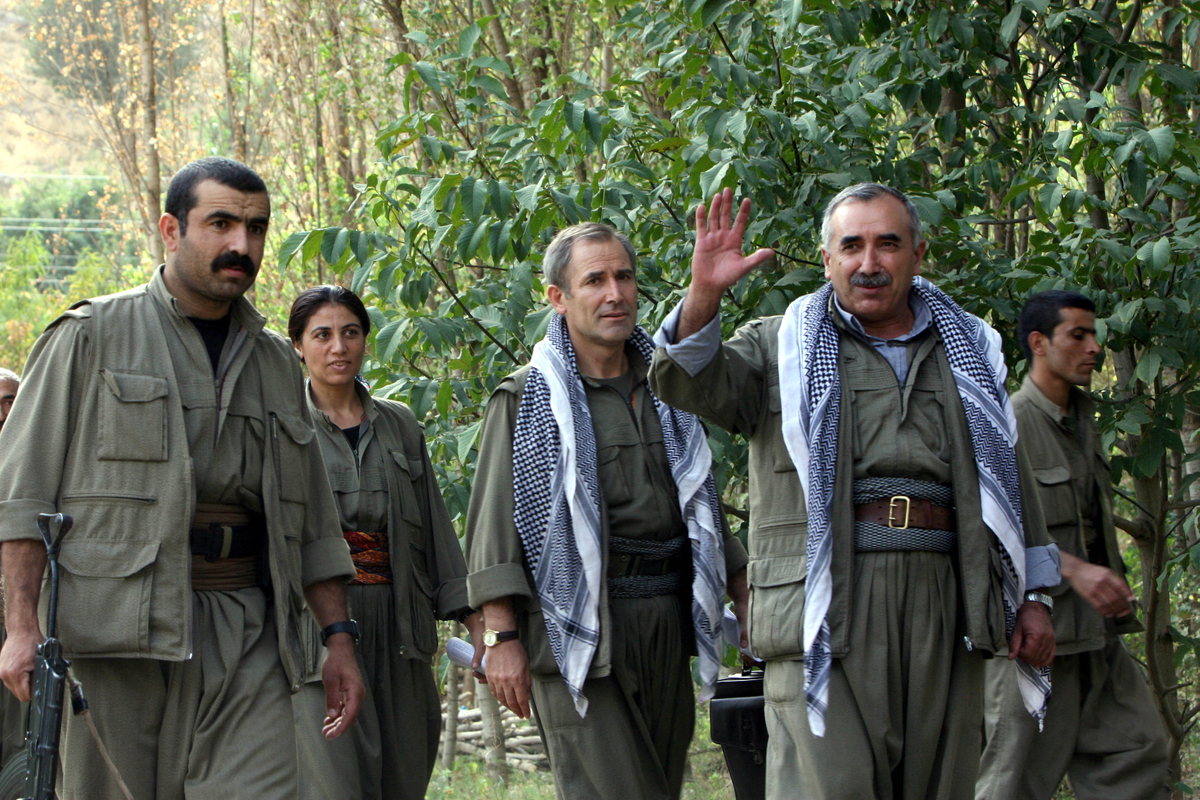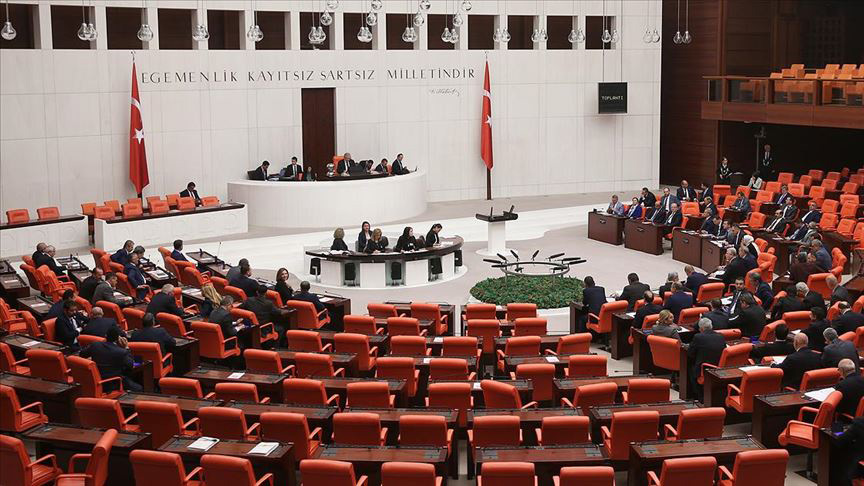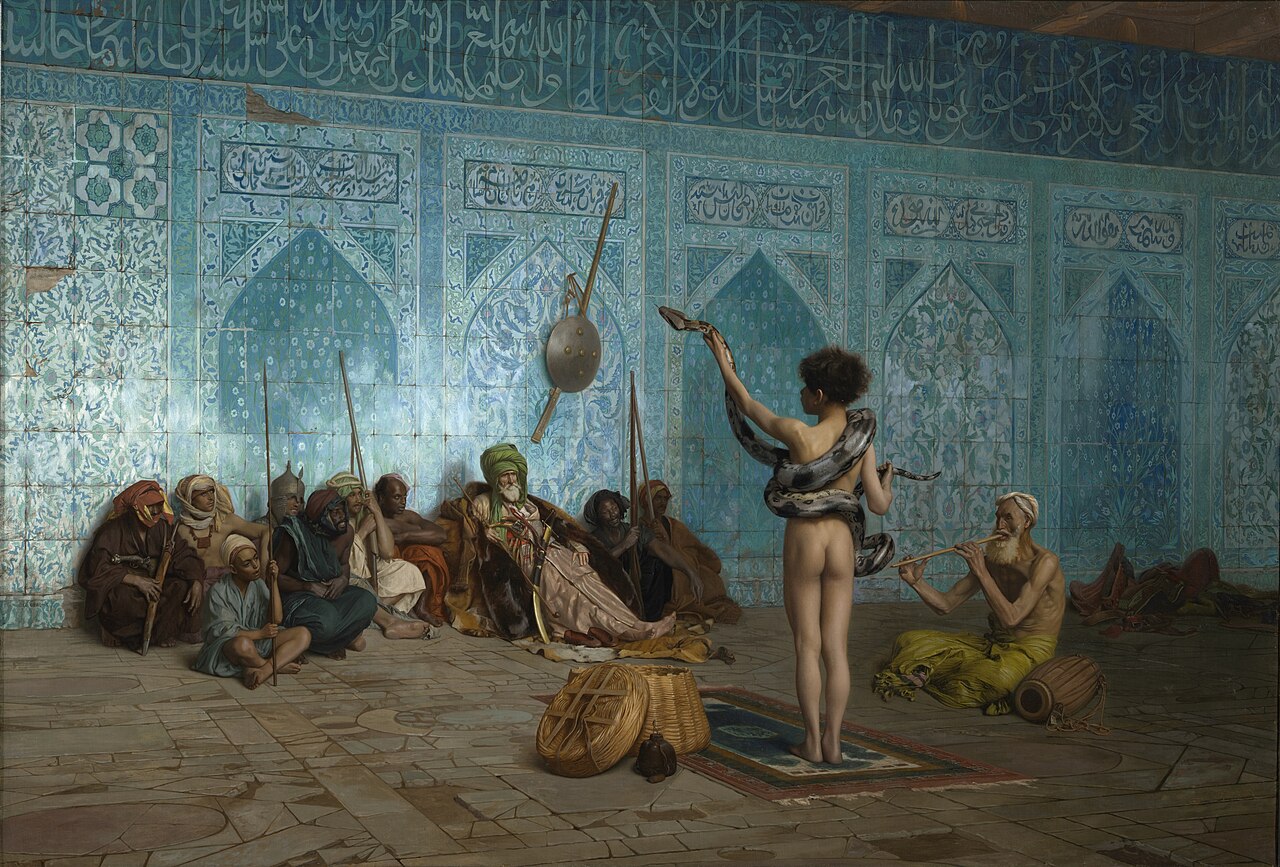Will Neoliberalization in Syria gain Ahmed al-Sharaa Western Recognition? An interview with Joseph Daher

When Ahmad al-Sharaa took control of the Syrian state at the end of 2024, he wasted no time reshaping the economy. The new Syrian leadership, represented by Hay’at Tahrir al-Sham, pivoted toward neoliberal policies, expanding the private sector, courting commercial elites, and seeking legitimacy through regional and international ties. In an interview with The Amargi, Joseph Daher, a Swiss-Syrian scholar of Middle Eastern political economy, explains how this turn to market-driven reforms is redefining power and survival in a fractured Syria. He examines whether such a model is capable of bringing Syria out of its deep economic crisis, created by more than a decade of war, and evaluates whether such a neoliberal framework can secure international recognition for the interim government despite its authoritarian character.
What do you think motivated HTS to adopt a neoliberal economic model despite its ideological background?
HTS’s neoliberal economic policies are part of a wider plan to consolidate its power and carry out a controlled transition. The group is attempting to allay foreign fears, establish contacts with regional powers, and be recognised as a legitimate force with which it is possible to negotiate.
Indeed, the approach taken by the new ruling group, Hay’at Tahrir al-Sham (HTS), does not represent a rupture with the former regime’s neoliberal economic policies but quite the opposite.
HTS’s neoliberal economic policies are part of a wider plan to consolidate its power and carry out a controlled transition. The group is attempting to allay foreign fears, establish contacts with regional powers, and be recognised as a legitimate force with which it is possible to negotiate.
HTS has no alternative to the neoliberal economic system, and similar to the dynamics and forms of crony capitalism that existed under the previous regime, the group is likely to develop these practices amongst business networks (comprising old and new figures).
In previous years, the Syrian Salvation Government (SSG), HTS’s civil administration in Idlib, has favored the development of the private sector, and close business associates of HTS and Ahmed al-Shareh. Meanwhile, most of the social services – particularly health and education – were provided by NGOs and INGOs.
Regarding its ideological background – Salafist jihadist – this is not necessarily in contradiction. Islamic fundamentalist movements have generally adopted liberal and market dynamics.
While these kinds of groups profess a commitment to equality and social justice, they mainly address these issues through top-down charitable projects. On the other hand, they advocate neoliberal economic principles and denounce bottom-up social movements, especially the trade union movement.
These contradictions run right through the theory and practice of fundamentalism. For example, the founder of the Syrian Muslim Brotherhood, Mustafa al-Sibai, argued “the socialism of Islam leads necessarily to the solidarity of various social categories and not to the war between classes, as communism does.” His 1959 book, Socialism of Islam, proposed that social equality could be achieved by appealing to an individual’s moral obligation to donate to the poor, rather than through governmental and social reforms such as progressive taxation, nationalization, and the establishment of welfare state programs. Sibai’s vision for an Islamic socialism was, however, a purely rhetorical maneuver used to contend with the rising influence of the country’s Ba’athists and Communists.
With the retreat of Arab nationalism and the Left, Islamic fundamentalist thinkers abandoned such radical rhetoric and increasingly stressed that the solution to the problem of poverty lay in a return to Islamic values and tradition. Rached Ghannouchi, the leader of Tunisia’s branch of the Muslim Brotherhood, al-Nahda, argued, “We need to emphasize that poverty, in the eyes of Islam, is linked to unbelief,” and went on to state, “We (the Islamic fundamentalist movements) are the guarantor of a particular social order and of a liberal economic regime.”
A similar trend can be found among Shia Islamic fundamentalist figures and movements. For example, during the Iranian Revolution, Khomeini presented Islam through the lens of social justice, praising the oppressed poor and condemning the rich, the greedy palace dwellers, and their foreign patrons. He used this rhetoric to mobilize the urban populace against the Shah’s regime. But after Khomeini consolidated the new Islamic regime and repressed his competition on the left, he abandoned this egalitarian rhetoric to depict the free market as an essential pillar of society and to extol private property. He transformed his definition of “the oppressed” from an economic category describing the deprived masses into a political label for the regime’s supporters, including wealthy bazaar merchants. He also stressed that the regime sought harmonious relationships between factory owners and workers and between landlords and peasants. The regime even ruled that land reform should not limit ownership, since such restrictions would violate the sacred rights of private property enshrined in sharia.
Islamic fundamentalists have supported neoliberal policies and built charitable organizations to fill the vacuum left by the destruction of welfare state programs.
Islamic fundamentalists have supported neoliberal policies and built charitable organizations to fill the vacuum left by the destruction of welfare state programs. They use these to win people’s allegiance to their reactionary project. The Egyptian Muslim Brotherhood is perhaps the best example. Hassan Malek, a businessman and ranking figure in the Brotherhood, declared in 2012 that the former dictator Hosni Mubarak’s neoliberal policies were sound, and that only corruption and nepotism marred their implementation. Recognizing a potential ally, the Cairo investment bank EFG-Hermes set up a meeting in June 2011 between fourteen international investment funds and the Brotherhood’s deputy supreme guide Khairat al-Shater. The investors declared that they “were positively surprised to find some of the ideas shared by the Brotherhood to be mostly capitalist in nature.”
The Lebanese party Hezbollah has also consistently endorsed free-market policies and defended private property, despite also professing a commitment to social justice goals. Hezbollah has supported policies such as privatization, liberalization, and opening up to foreign capital. It in no way sees these in contradiction to its purported commitment to social equality, despite the poverty these policies have caused.
The fundamentalists have used charitable organizations to address the social impact of neoliberalism.
How effective do you think this model is in addressing the economic challenges of war-torn Syria?
I think it will achieve the opposite- deepening previous problems and the shortcomings of Syria’s legitimacy.
While the lifting of U.S. sanctions represents a major source of hope for the Syrian population by removing one of the most significant barriers to economic recovery, there are still substantial legal and procedural uncertainties that remain that could delay or complicate full economic normalization. First, the lifting of sanctions must be institutionalized through a clear and formal process. Secondly, and more critically, even in the absence of sanctions, Syria faces deep structural economic obstacles regarding the instability of the Syrian Pound (SYP) and competition of Turkish Pound and USD, damaged and destroyed infrastructures, high cost of production, continued shortages of key inputs, transport networks in disrepair, shortage of qualified labor, the private sector, dominated by micro, small, and medium-sized enterprises (MSMEs), still requires significant modernization and capital; state resources remain limited, curbing public investment capacity; energy access – critical bottleneck.
Regarding the private sector, composed of over 95% of micro, small, and medium-scale enterprises (MSMEs) with limited capacities, it still requires significant modernisation and rebuilding after more than 13 years of war and destruction. Moreover, accelerated trade liberalization pursued by the government is threatening their existence even more. In late January 2025, Damascus reduced customs duties on over 260 Turkish products. Turkey’s exports to Syria in the first five months of 2025 amounted to $1 billion, representing a growth of over 47% compared to the same period in 2024, according to the Turkish Ministry of Trade. Syrian and Turkish officials have also agreed to reopen negotiations on the 2005 Turkey-Syria Free Trade Agreement, suspended since 2011, with plans for a broader economic partnership. However, this will endanger even more Syrian national production, particularly in manufacturing and agriculture, which may struggle to compete with Turkish imports. The original 2005 FTA had a detrimental impact on local industries, leading to the closure of many manufacturing plants, especially in the suburbs of major cities, such as Aleppo and Damascus.
State resources are also severely restricted, further limiting investment in the economy, while the politico-economic orientation of the new ruling authorities favors a commercial economic model, characterized by investment in short-term profit-seeking, to the detriment of the productive sectors of the economy.
Moreover, the HTS’s political and economic orientation, rooted in neoliberal dynamics and accompanied by harsh austerity measures, makes it harder to establish the foundations for a viable and inclusive reconstruction process. For instance, the government’s recent contracts in the electricity sector privilege forms of full privatization through the Build-Own-Operate (BOO) model. In this model, a private company undertakes the construction and operation of a project, maintaining ownership of the asset indefinitely. This signifies that control over a public service or infrastructure asset permanently transitions from state to private hands. They could therefore decide on their own the price of electricity and its distribution. In addition, the current economic trajectory is exacerbating poverty and deepening structural underdevelopment in key productive sectors.
In terms of austerity measures, several decisions have been undertaken. The price of subsidised bread was raised from SYP 400 (weight 1100 grams) to SYP 4000 (initially, weight 1500 grams and then diminished to 1200 grams). A few weeks later, the Minister of Electricity, Omar Shaqrouq, stated in January 2025 in an interview for the website the Syria Report that they will eventually reduce or even remove the subsidy policy on electricity prices because current “prices are very low, much below their costs, but only gradually and only provided average incomes increase”. Meanwhile, the price of the subsidized domestic gas cylinder increased considerably, reaching in May a price of $11.8 or approximately SYP 129,800, compared with SYP 25,000 ($2.1) in December 2024, which significantly affects Syrian families.
More generally, the government suspended subsidised fuel in December 2024, increasing production costs for the agricultural and manufacturing sectors. Now, the local price of oil products is set in US dollars, making it subject to fluctuations of the Syrian pound’s exchange rate.
The sectarian massacres in the coastal areas and the subsequent attacks on Druze populations significantly reduced the potency of the protest movement, because of fears that armed groups close to the regime might react with violence.
In addition, the new ruling authority announced the dismissal of between one quarter and one third of the state workforce at the beginning of the year, corresponding to employees who, according to the new authorities, were getting a salary without actually working. Since then, no official estimates have been released for the total number of employees dismissed, while some are currently on paid leave for three months to clarify their situation, whether they were working or not. Following this decision, protests by workers who were dismissed or suspended have erupted throughout the country in January and February 2025. However, the sectarian massacres in the coastal areas and afterwards attacks on Druze populations significantly reduced the potency of the protest movement, because of fears that armed groups close to the regime might react with violence.
After months of waiting, the government finally raised the salaries of public employees and retirees by 200 percent, making the minimum wage SYP 750,000 per month, or around $68 (according to the official exchange rate of SYP 11,000 for $1), effective as of July. While a step in the right direction, most of the population, whether employed by the state or the private sector, cannot cover their monthly needs with their salaries. According to estimates made by the newspaper Kassioun at the end of June 2025, the minimum cost of living for a five-member Syrian family living in Damascus reached approximately SYP 9 million (around $818). The Syrian population not only needs jobs, but jobs that pay enough to allow individuals to live in dignity and cover their daily needs. In addition, the cuts in subsidies and rise in the prices of essential products will only worsen the situation and cancel out the effects of a salary increase.
Syria is also facing one of the most severe food crises in recent decades, as an acute drought in 2025 threatens to decimate the domestic wheat harvest, traditionally a cornerstone of the country’s agricultural output. More generally, this crisis is connected to a systemic agricultural decline and unstable trade relations. Rumors are circulating about the abandonment of support for wheat cultivation, traditionally a pillar of the country’s agricultural production. According to a source at the Ministry of Agriculture, as reported by The Syria Report website, the Ministry is considering abandoning support for wheat cultivation. Even before the fall of the Assad regime, input costs were consistently high, with fertilizer prices tripling since 2023 – increasing production costs, limiting farmers’ access to inputs, and negatively affecting agricultural production.
Moreover, reforms to establish a new tax system announced in mid-July by the Syrian Ministry of Finance to come into force at the beginning of 2026 will probably diminish revenues. Indeed, with a unified and non-categorical tax structure, and a similar corporate tax applied equally across all business entities regardless of their size, it will weaken the ability to expand the revenue base, and is fundamentally unequal.
In this context, the economic decisions of the new authorities are further impoverishing large swathes of the population and deepening underdevelopment in Syria’s productive economic sectors.
Gaining international legitimacy, particularly from the West, is part of a wider policy of the HTS, in which international recognition and rooting Syria in a new alliance with the USA and its regional allies is the first factor.
To what extent is HTS using neoliberalism to gain international legitimacy, particularly from the West?
Gaining international legitimacy, particularly from the West, is part of a wider policy of the HTS, in which international recognition and rooting Syria in a new alliance with the USA and its regional allies is the first factor.
Damascus’ rapprochement with the USA and its regional allies has indeed allowed for a relatively rapid process of sanctions relief, although not complete, which has paved the way for renewed regional engagement with the Syrian state and its institutions. At the same time, sanctions relief permits the reintegration of Syria’s economy into regional and global markets. It will facilitate financial transactions, revitalize trade flows, and open the door for Foreign Direct Investment (FDI), as well as engagement from the Syrian business diaspora—key priorities for the new ruling authority. In this context, Damascus has intensified efforts to attract regional and international firms to invest in infrastructure modernization and revenue-generating sectors. Several relatively important Memoranda of Understanding with regional and international companies have already been concluded, although their implementation in time still needs to be seen.
Officially, there have been no conditions in the continued process of lifting US sanctions on Syria, but it is clear that it was achieved in exchange for negotiations and concessions on various issues, including control of Palestinian political and armed actors in Syria and normalization with Israel. Several Palestinian officials in Syria have been arrested, including members of the Palestinian Islamic Jihad movement and the leader of the Popular Front for the Liberation of Palestine – General Command, who was an ally of the former Assad regime. Some leaders of Palestinian armed factions, mostly connected to the former Syrian regime, also had to leave the country.
The rapprochement with the USA is also why Damascus has not condemned the massive Israeli strikes against the Islamic Republic of Iran. They perceive quite positively a weakening of Iran, just as they did with Hezbollah in Lebanon. This position is not only connected to Iran’s role during the Syrian uprising and the hostility towards it of large sectors of the Syrian population, but it also reflects the political orientation of the new ruling elite in Syria, seeking to root the country in a US-led axis to consolidate their power. At the same time, they increased control of the border between Lebanon and Syria, where weapons destined for Hezbollah are regularly seized.
Do you think this economic strategy risks whitewashing HTS’s authoritarianism and past atrocities in the eyes of the West?
The key issue is whether HTS can serve US and Western-led interests and guarantee a form of authoritarian stability. Not that western actors are satisfied with the violation of human rights, but they don’t want them to turn into forms of instability for the country and potentially its neighbors, like in the latest Suweida dramatic events. But we must be clear, the USA and European states are first interested in their political and economic interests, and not in respect of human rights, as we saw with the case of Israel and other regional authoritarian states.
What economic alternatives do you believe could contribute to improving the situation in Syria?
Economic alternatives must be built from below
Three major factors are needed for successful and sustained national rehabilitation and reconstruction. First, an inclusive political transition creates conditions for participation by different sectors of society. Second, the establishment of a counterweight and strong civil society (not limited to NGOs but including trade unions, peasant associations, professional associations, political parties, etc) to those in power that deepens the democratization of Syria’s political space. And finally, an improvement in socioeconomic conditions to increase participation from below, particularly among the most vulnerable classes of society, who face difficult living conditions.
More generally, economic alternatives must be built from below. Then, changing the political economy’s orientation towards a more developmental model, boosting the productive sectors of the economy, and serving the interests of the 99% rather than a small minority.
In this framework, we could seek to promote policies protecting and empowering micro, small, and medium enterprises (MSMEs), particularly in the manufacturing and agricultural sectors. MSMEs form the vast majority of enterprises in Syria and are key to reactive national production. Supporting MSMEs and agriculture in Syria requires addressing key challenges, including promoting solar energy and other ecological alternatives to protect against electricity shortages; facilitating financial services to improve limited access to finance; and improving trade opportunities to address restricted market access.
Similarly, empower the role of the state and public services. Moreover, there is a need to promote a fiscal reform for a progressive taxation system on individuals and companies, strengthen tax compliance, and broaden the tax base. The reform of the fiscal system could allow the state to promote a series of social reforms to tackle socio-economic inequalities and therefore boost its credentials, such as the establishment of universal health coverage to cover the needs of the population, or investments in productive sectors of the economy. In addition to this, authorities should address the issue of informal businesses and tackle tax evasion.
Cihad Hammy
Cihad Hammy studies English and American Studies (Master’s) at the University of Hamburg. He is a researcher and the co-editor of Rojava in Focus: Critical Dialogues.



